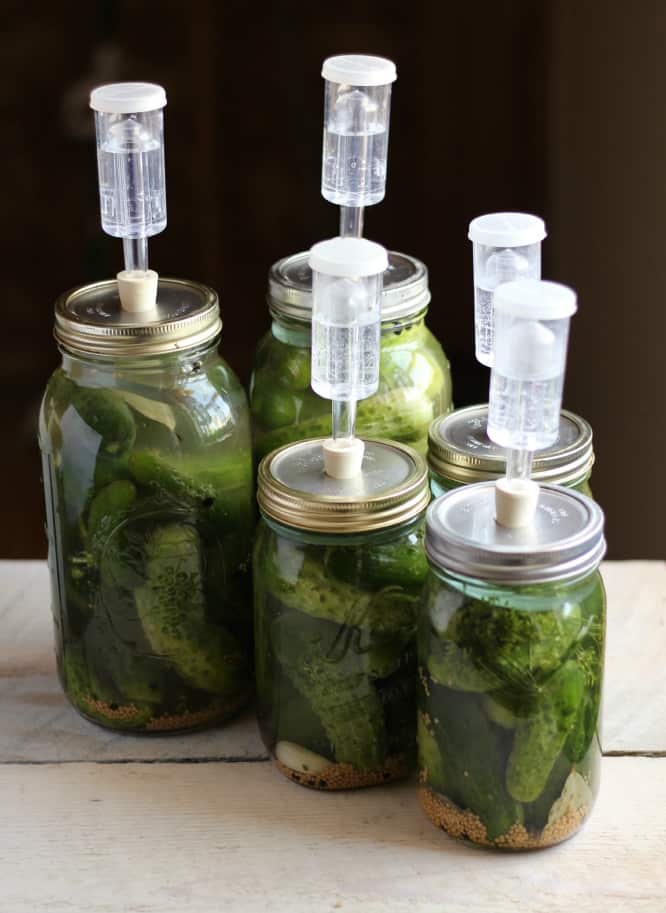Introduction
Fermentation is an ancient culinary technique that enhances flavors, preserves food, and promotes gut health. Indian cuisine is rich in fermented delicacies, with pickles being a staple in many households. This guide explores the science behind fermentation, traditional methods of making pickles, and the health benefits of probiotics.
The Science Behind Fermentation
Fermentation is a natural process where microorganisms like bacteria and yeast break down sugars into beneficial compounds such as organic acids, gases, and alcohol. In pickling, lactic acid fermentation is the key process, where beneficial bacteria convert sugars into lactic acid, preserving the food and enhancing its nutritional value.
Health Benefits of Fermented Foods
- Improves Digestion – Fermented foods are rich in probiotics, which promote gut health and aid digestion.
- Enhances Nutrient Absorption – Fermentation breaks down anti-nutrients, making vitamins and minerals more bioavailable.
- Boosts Immunity – A healthy gut microbiome strengthens the immune system and reduces inflammation.
- Natural Preservation – Fermented pickles last longer without artificial preservatives, making them a sustainable choice.
Traditional Indian Pickling Methods
Indian pickles, known as achaar, are made using various techniques depending on the region and available ingredients. Here are some common pickling methods:
1. Sun-Dried Fermentation
- This method is commonly used for mango, lemon, and chili pickles.
- Ingredients are mixed with salt and spices and left to ferment under sunlight for several days.
- Sunlight enhances the fermentation process, deepening the flavors over time.
2. Brine-Based Fermentation
- Vegetables like carrots, radishes, and cucumbers are submerged in a saltwater solution.
- Natural bacteria ferment the vegetables, creating tangy, probiotic-rich pickles.
- This method requires airtight containers and takes about 7-10 days for fermentation.
3. Oil-Based Pickling
- Mustard oil, sesame oil, or coconut oil is used to preserve pickles, preventing spoilage.
- This method is widely used in North and South India for making spicy, long-lasting pickles.
Easy Homemade Pickle Recipes
1. Classic Indian Mango Pickle (Aam Ka Achaar)
Ingredients:
- 2 raw mangoes (chopped)
- 2 tbsp salt
- 1 tbsp turmeric powder
- 1 tbsp red chili powder
- 2 tbsp mustard seeds (crushed)
- ½ cup mustard oil
Instructions:
- Mix mango pieces with salt, turmeric, and chili powder.
- Let it rest for a day in sunlight.
- Add crushed mustard seeds and mustard oil.
- Store in a glass jar and ferment for 5-7 days.
2. Probiotic Carrot & Radish Pickle (Gajar Mooli Achaar)
Ingredients:
- 2 carrots (sliced)
- 1 radish (sliced)
- 1 tbsp salt
- 1 tbsp mustard seeds
- ½ tbsp chili powder
- 2 cups water
Instructions:
- Dissolve salt in water and add mustard seeds.
- Submerge the carrots and radishes in the brine.
- Store in an airtight jar at room temperature for 5 days.
- Enjoy the tangy, probiotic-rich pickle.
Tips for Successful Fermentation
- Use clean, sterilized jars to prevent contamination.
- Avoid tap water (which contains chlorine) as it can disrupt fermentation.
- Keep pickles away from direct light once fermentation is complete.
- Check for mold and discard any spoiled pickles.
Conclusion
Homemade pickles are a flavorful way to incorporate probiotics into your diet. Fermenting vegetables not only enhances taste but also offers numerous health benefits. Try these traditional techniques and enjoy the goodness of homemade, gut-friendly pickles!
Stay tuned to ShasKitchen.in for more healthy recipes and fermentation tips!

